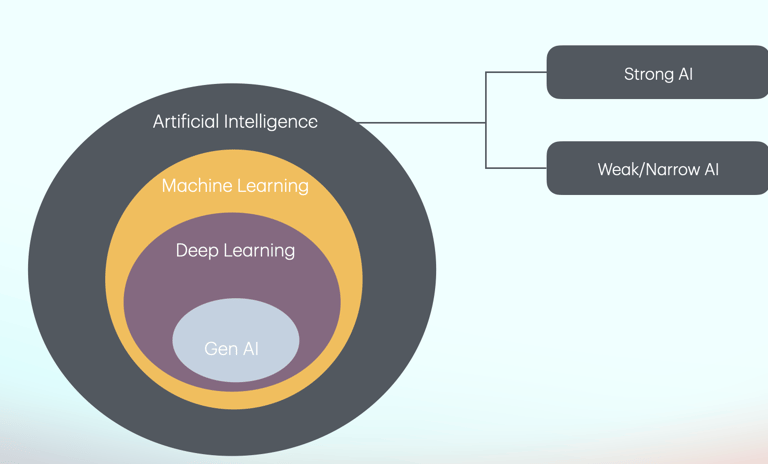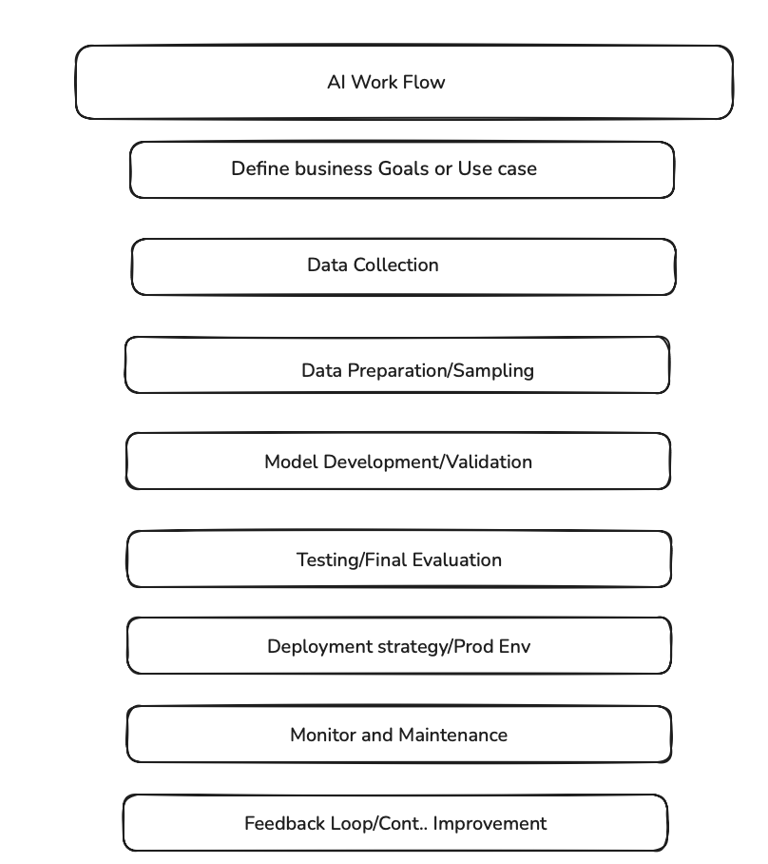Artificial Intelligence for C Suites - Introduction
This article provides C-suite leaders and senior executives with essential insights into Artificial Intelligence (AI) and its key terminologies.
2/25/20252 min read


What is Artificial intelligence?
Artificial Intelligence (AI) is a technology designed to automate tasks, assisting humans by reducing effort and enhancing efficiency. The goal is to develop systems that mimic human intelligence, primarily focusing on learning and applying knowledge in decision-making processes.
A key aspect of AI is its ability to learn from interactions and experiences. Just as humans acquire skills from various sources and make decisions based on their exposure to different situations, AI systems learn by processing data and adapting to dynamic scenarios.
Now, let's explore some fundamental components of an AI system.
AI for C-Suites
The field of AI is evolving rapidly, with numerous systems already available in the market. While there are many in-depth resources online for studying AI, this article focuses on key insights that executives need to embrace and integrate AI into their organizations effectively.
Although the concept of AI has existed for decades, recent advancements in cloud computing, high-performance computing chips, and other technological breakthroughs have significantly accelerated its development. Over the past five years, these innovations have enabled rapid adoption, ushering in a new era of computing.
AI Types


Strong AI is similar to that of what we see in movies where the robots outperform the humans most of the times. However AI field is not quite there yet especially Humans decisions capability changes based on their feelings.
For now we can classify this into two:
General AI or Gen AI
Super Intelligent AI - Similar to Human - We are not there yet and we are not far as well as the current growth of developing such systems is exponential.
Narrow AI - Typical example is ChatGPT - Developed to perform specific task
Lets start learn about some of the basics of AI system and its components
Deep Learning - Neural Networks
Machine Learning - Patterns from Data
Artificial Intelligence
Predictive AI
Based on Input it produces output , example given the data in an excel sheet, creating pie charts or forecast based on formula
GenAI
Creates new data, content or music, images etc based on the LLM, which will see shortly
AI Work flow
Define business Goals or Use case
Identify the use and the problem statement
Data Collection
Collect the data source
Data Preparation/Sampling
Prepare the data by refining
identify the sample data
Model Development/Validation
Create a Model and evaluate it
Testing/Final Evaluation
Test the model and output
Deployment strategy/Prod Env
Deploy the solution
Monitor and Maintenance
Monitor the behaviour of the solution
Feedback Loop/Cont.. Improvement
Is there a problem/refinement required, continue to train the model until expected outcome is achieved


Summary
This brief blog is for executives to embrace the AI technology . I'm confident by now you have some fair understanding of the basics of AI. In the upcoming blogs, we will learn about Machine Learning, Neural Networks and Practical applications of AI systems. Please read other blogs to understand it better, Happy learning! I welcome you all to AI Journey.


Consulting
Expertise in cloud migrations and architecture solutions.
Services
Contact
© 2025. All rights reserved.
